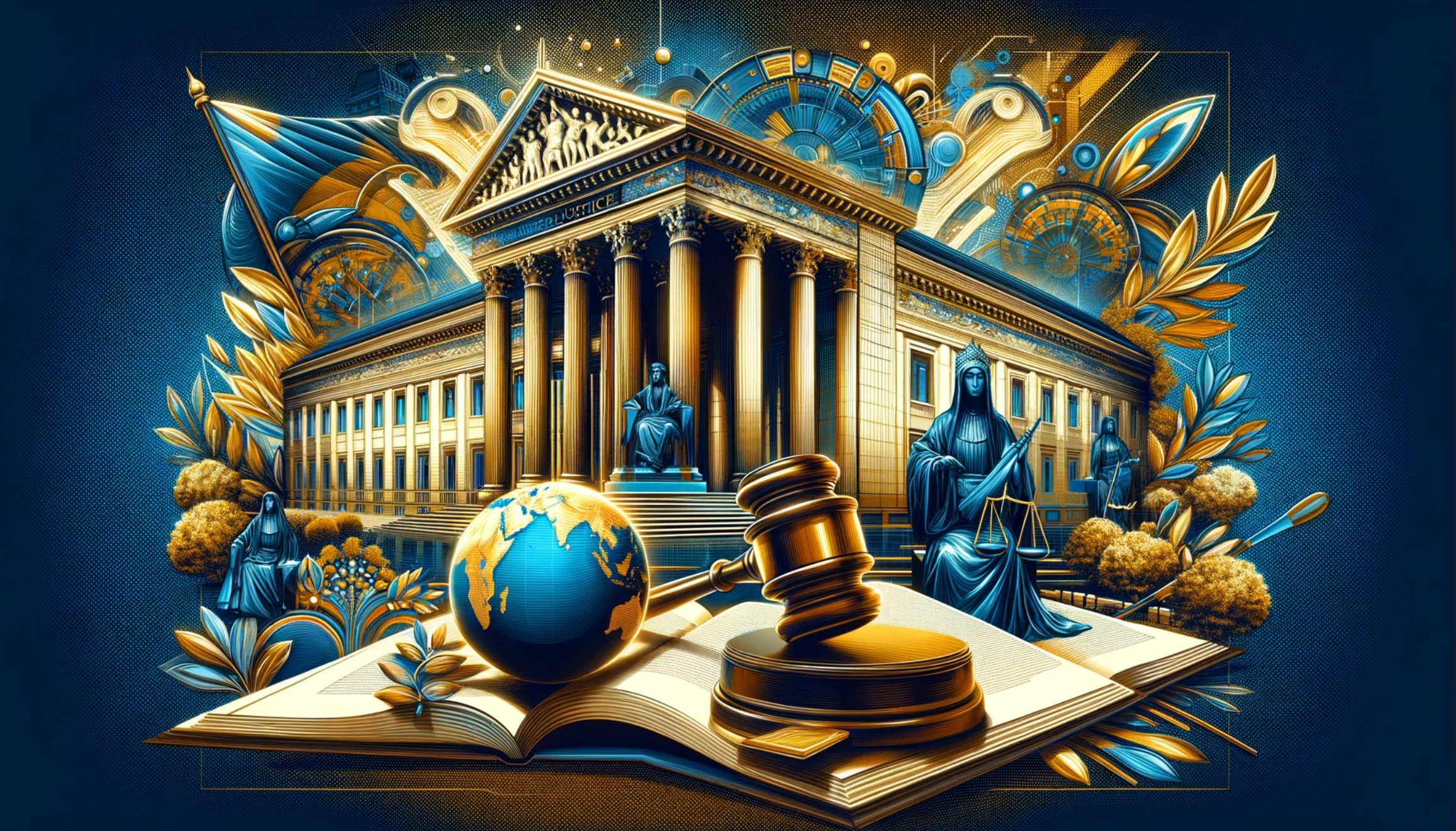Introduction to the International Court of Justice
The International Court of Justice (ICJ), often referred to as the World Court, stands as the principal judicial organ of the United Nations. Established to adjudicate disputes between states, it plays a vital role in the global legal system. By exploring recent events involving Israel, we can examine the ICJ’s function and significance in contemporary international law.
History and Establishment of the ICJ
The ICJ was formed in 1945, following the devastation of World War II, as part of the establishment of the United Nations. It was designed to replace the Permanent Court of International Justice and to provide a legal framework for international relations, ensuring peaceful resolutions to conflicts between states. As a key judicial organ of the United Nations, the ICJ embodies the world’s collective desire for lawful and peaceful resolution of international disputes, offering a forum where international law can be applied and interpreted.
Jurisdiction and Functioning of the ICJ
The International Court of Justice (ICJ) has a broad jurisdiction, adjudicating legal disputes between states and giving advisory opinions on legal questions referred by authorized international organs and agencies. It addresses cases involving border disputes, maritime boundaries, diplomatic relations, and more. The process starts with a state submitting a case to the court, followed by written and oral proceedings, after which the judges deliberate and issue their judgment or advisory opinion.
The ICJ and Israel’s Current Events
Regarding Israel, the ICJ has dealt with cases that significantly impacted international law and relations. An analysis of a recent case involving Israel would reveal how the court’s decisions or advisory opinions can influence the course of international events. These cases often involve complex issues of international law and can have profound implications for international relations, setting precedents and guiding future diplomatic and legal actions.
In examining Israel’s situation in the International Court of Justice and comparing it to the Nicaragua vs. United States case of the 1980s, we observe a recurring theme. In both scenarios, major global powers have displayed resistance to the ICJ’s rulings. The U.S., in the Nicaragua case, chose not to acknowledge the court’s decision. This pattern is echoed in Israel’s current dealings with the ICJ, highlighting a significant challenge: the court’s difficulty in enforcing its decisions against influential nations on the global stage.
Challenges and Limitations
The ICJ faces significant challenges in enforcing its decisions, primarily because it lacks a direct mechanism for enforcement. The compliance of states depends on their willingness and the pressure exerted by the international community. The court’s effectiveness in resolving disputes is often debated. While it provides a legal forum for states to resolve disputes peacefully, its impact is limited by issues of jurisdiction, political considerations, and the voluntary nature of its jurisdiction. These factors can affect the court’s ability to resolve international disputes effectively.
Conclusions
- The ICJ’s Role: It’s a key platform for peaceful dispute resolution in international law.
- Historical Significance: The ICJ’s establishment post-WWII marked a global commitment to legal conflict resolution.
- Broad Jurisdiction: The ICJ handles a wide range of international legal disputes, emphasizing its diverse role.
- Enforcement Challenges: The court’s effectiveness is limited by its reliance on states’ compliance and political will.
- Impact on Global Diplomacy: ICJ decisions shape legal precedents, influencing future international relations.
- Overall Effectiveness: Despite limitations, the ICJ plays a crucial role in maintaining global order and legal norms.
References
- History | INTERNATIONAL COURT OF JUSTICE. (s. f.). https://www.icj-cij.org/history
- ICJ, Nicaragua v. United States | How does law protect in War? – online casebook. (s. f.). https://casebook.icrc.org/case-study/icj-nicaragua-v-united-states
- Kestler-D’Amours, J. (2024, 27 enero). ICJ ruling in Gaza Genocide case Renews calls to end Israel arms transfers. Al Jazeera. https://www.aljazeera.com/news/2024/1/27/icj-ruling-in-gaza-genocide-case-renews-calls-to-end-israel-arms-transfers
- ChatGPT. (n.d.). OpenAI. https://chat.openai.com/#









No responses yet